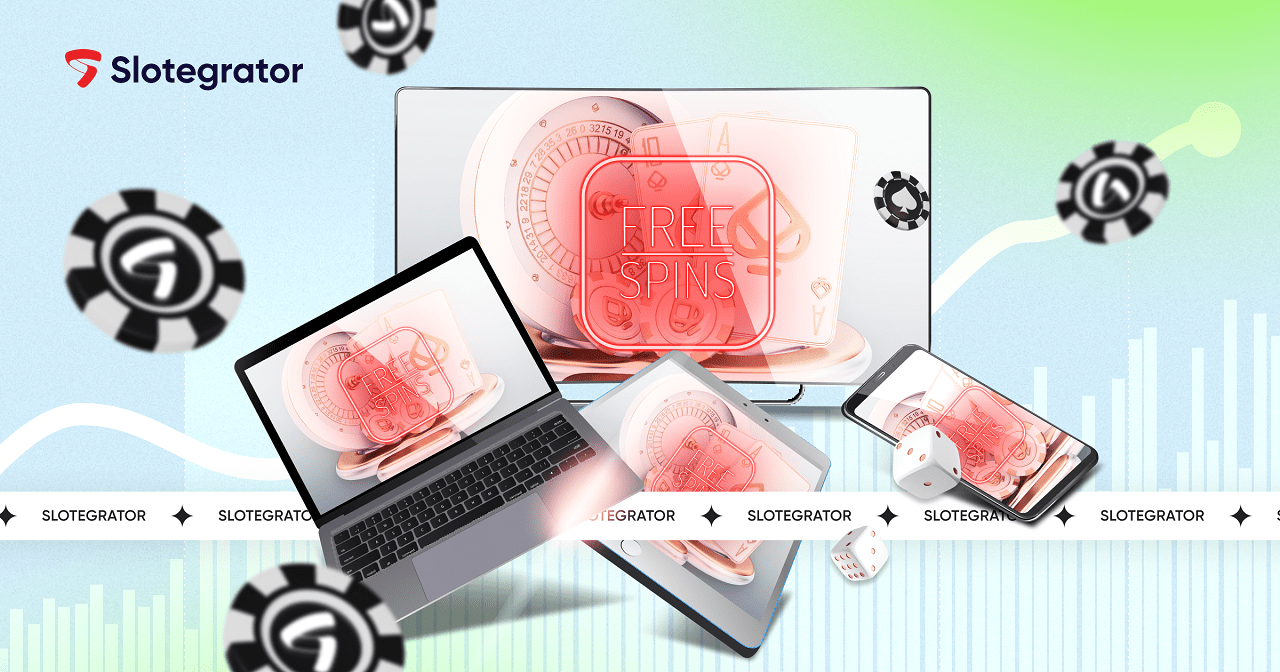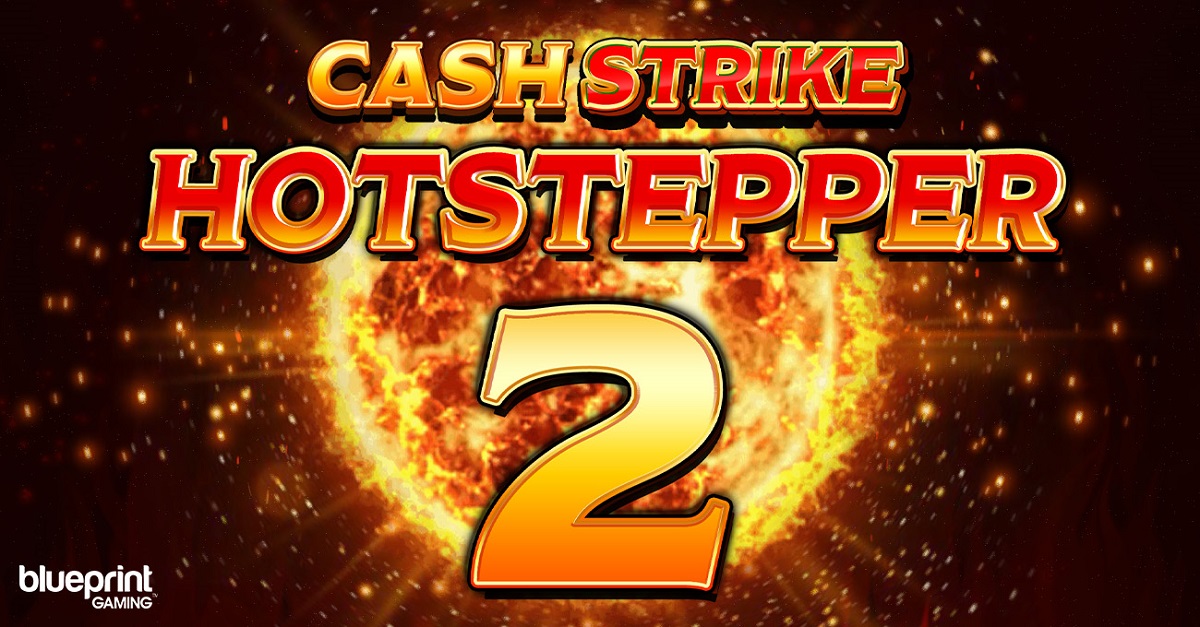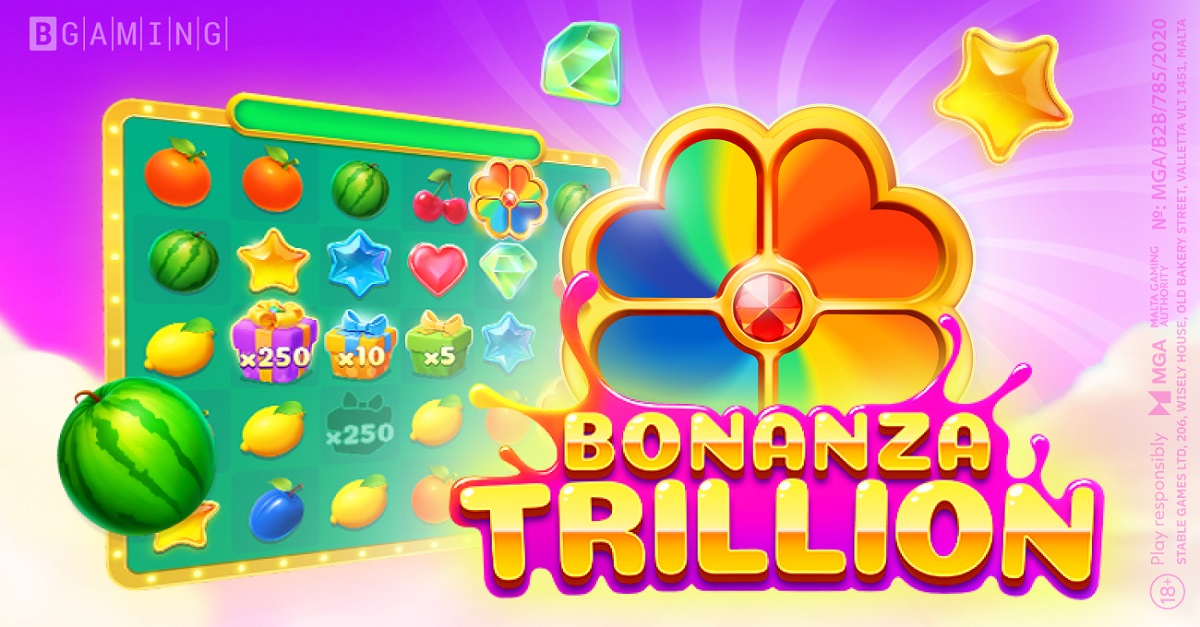

Latest News
How to promote and advertise your gambling business in highly regulated markets
Reading Time: 6 minutes
According to data from Statista, the global online gambling market is expected to be worth $107.3 billion by the end of this year, and $138.1 billion by 2028. As the industry continues to grow, so do its responsibilities — and the general trend is more advertising regulations, not fewer. Slotegrator shares key findings on this issue for those seeking to operate responsibly.
Online gambling sometimes faces severe limitations or complete bans, even in nations where land-based casinos are legal. Even outside historically conservative nations, there is a general trend toward more stringent regulation; liberal nations like Georgia and Lithuania have made substantial adjustments to tighten oversight of gaming operators and advertising strategies.
Countries throughout the EU are slowly harmonizing their gambling regulations, and CIS countries are also actively improving the regulation of the iGaming market, with special attention paid to strict regulation in the field of advertising. Governments argue that stricter advertising restrictions are not intended to stifle the growth of the industry, but rather are necessary measures for effective industry oversight.
Advertising regulations can vary dramatically from country to country depending on its legal status and cultural attitudes toward the practice. However, in most countries with a regulated gambling industry, there are some common general principles of advertising regulation:
- Prohibition of advertising to minors.
- Advertising content requirements.
- Licensing and regulation of advertising.
- Prohibition of deceptive or aggressive advertising.
You can read more about these points in a new article from Slotegrator Academy.
What are the consequences for illegal gambling advertising?
From fines and criminal charges to license revocation and asset seizure, authorities employ a range of measures to enforce compliance with advertising regulations and uphold the integrity of the gambling industry.
- Fines are one of the most common penalties for illegal gambling advertising in gambling regulated countries.
- Harsh measures like license revocation or suspension are possible.
- Criminal charges may even be brought against the individuals or organizations responsible for the illegal advertising.
- In cases of illegal gambling advertising activities, authorities can seize assets, profits, or proceeds obtained unlawfully.
Experts from CasinoRIX, Slotegrator’s media partner, comments: “When launching projects in such markets, the main task is to thoroughly study all the requirements from local regulators – whether licenses for affiliates are required and what restrictions or rules exist for operations and advertising. Then, it’s essential to constantly monitor possible changes and amendments to comply with all provisions.
It’s not enough to know which tools and traffic channels to use; for example, to promote on social networks, one needs to delve deeper into prohibitions at the legislative level and understand the social responsibility of all your actions.
Additionally, it is necessary to maintain constant communication and exchange experiences with your partners to reduce the chances of mistakes.”
Here are a few examples of how gambling advertising is regulated in different European and countries and in the Baltic region:
- In Lithuania in 2021, the government implemented a comprehensive prohibition on the promotion and advertising of gambling activities through any means, including television, banners, and external advertising channels. Additionally, the government prohibited operators from offering players incentives such as free spins or bonuses.
- In Latvia, the promotion of gambling activities is strictly regulated, with allowances limited exclusively to land-based casinos. Operators are permitted to advertise solely by displaying the name of the casino, the organizer, and the official trademark. It is also prohibited to offer participation in gambling for free, as a gift or prize.
- In Estonia operators enjoy significant freedom in advertising their gambling services, with television and free streaming platforms being particularly favored channels for promotions, often utilized during nighttime hours. This leniency extends to casinos, which have the liberty to advertise bonus offers, promotions, and their own brand without significant restrictions.
- Finland maintains a stringent stance on gambling advertising, with legislation prohibiting promotions across various mediums including radio, television, online platforms, and public spaces. The authorities maintain strict surveillance over advertising activities, particularly targeting operators lacking a local license.
- In Italy, in 2019, the government implemented a sweeping ban on all forms of gambling advertising in the country. This legislation prohibits both direct and indirect promotion of gambling services through all available information channels, including television, radio, print media, the internet, and any other public platform. Additionally, the initiative extends to banning sponsorship in soccer, prohibiting the placement of logos, merchandise, or the use of other marketing tools associated with gambling.
- In Spain, stringent regulations have been implemented to restrict almost all forms of gambling advertising, including sponsorships. The only exception is during late-night hours, from 1:00 to 5:00, where live broadcasts are permitted to feature gambling advertisements. Furthermore, welcome bonuses were prohibited starting from 2020.
- In Belgium the government took a decisive step to combat addiction and debt associated with gambling by instituting a comprehensive ban on gambling advertising across multiple platforms starting from July 1, 2023. This prohibition extends to television, radio, cinemas, magazines, newspapers, public spaces, and even online advertising on websites and social media.
- In Denmark, gambling advertising is permissible within the country’s borders, provided it does not target minors. Operators are required to highlight that gambling is primarily intended for entertainment purposes, rather than as a means of making money. Moreover, when featuring prominent individuals in their advertising campaigns, operators must refrain from conveying the notion that gambling played a significant role in their success.
- In Sweden, all forms of gambling and betting are permitted, along with advertising for them. However, under the Marketing Act, only games and lotteries licensed in Sweden are eligible for advertisement.
“One of the first items that should be on your to-do list if you want to develop working strategies for a highly regulated market is to conduct thorough market research — and your first stop is your target market’s regulatory framework. You should also analyze competitors’ marketing approaches and monitor how they navigate regulatory compliance. Seeing how other companies are innovating to market effectively while maintaining compliance could help inspire your team to develop new strategies, and in some cases provide an example of what not to do.”, comments Svetlana Kirichenko, Head of Marketing at Slotegrator.
Slotegrator is always interested in partners’ opinions on advertising in regulated markets.
Martin Calvert, Marketing Director at ICS-digital, actively followed the changes and shared his answers in a blitz interview:
Slotegrator: What do you think the tightening of the market for advertising in the iGaming industry will bring?
Martin Calvert: Hopefully a renewed focus on product and competing responsibly for the attention of players.
For some markets, operators already have a dependence on paid media and the affiliate channel – but they haven’t always worked as true partners with their affiliates.
Perhaps given their need for high quality traffic, there will be more incentive to work more collaboratively with partners in the affiliate channel.
Of course, given what we do at ICS-digital and ICS-translate, I’m always enthusiastic about the potential for organic SEO and targeted content to bring players directly in an efficient and scalable way – but not every operator is well-equipped to capitalize on this potential.
Slotegrator: Do universal rules for marketing activities in the industry exist today?
Martin Calvert: It feels like if we’re being totally honest, the range of marketing activities in the industry is enormous – some brands are at the leading edge of innovation, while others are deeply traditional.
I think the main thing is to focus on strategies that a.) fit well with your brand and b.) still deliver the results needed.
You don’t need to do everything, or mirror exactly what competitors are doing – finding your own path can bring you closer to your ideal customers.
That said, I think there are some themes that will always make marketing easier – commitment to understanding multiple audiences, using data responsibly and being both creative and practical can help keep things interesting but efficient.
Slotegrator: Is the tightening of regulation of the advertising market in the iGaming industry able to influence the formation of a responsible gaming culture?
Martin Calvert: Yes, I think sometimes having real restrictions on activities is needed to make marketing practices evolve more quickly and responsibly.
A true culture though is based around how companies decide to conduct themselves, and how they structure their activities in line with some kind of values.
For more and more iGaming companies, this is something that they’re willing to commit to, seeing themselves more like entertainment and tech brands than conventional betting brands.
Committing to responsible gaming has other advantages too – in the world of SEO, Google closely scrutinises YMYL sites i.e. ‘Your Money, Your Life’ sites with the potential to effect someone’s finances or health.
Betting brands who take a responsible approach have a better chance of staying on the right side of Google with responsible content. This is another reason why betting brands who focus on Experience, Expertise, Authority and Trust (E-E-A-T) in their content have the potential to increase rankings and traffic over time.
Slotegrator: How not to get lost in the market with all these changes?
Martin Calvert: I think the most important thing is to analyse competitors, but don’t be tempted to try and do everything they do.
More than ever there is useful and practical advice from Google and other important gateways and platforms.
Making good judgements about marketing depends on understanding your target audiences and, where possible, responding to their wants, needs and queries in an efficient and clear way.
In this respect, responsible gambling fits well with online marketing, content and SEO best practice.
ABOUT SLOTEGRATOR
Since 2012, Slotegrator has been one of the iGaming industry’s leading software and business solution providers for online casino and sportsbook operators.
The company’s main focus is software development and support for online casino platforms, as well as the integration of game content and payment systems.
The company works with licensed game developers and offers a vast portfolio of casino content: slots, live casino games, poker, virtual sports, table games, lotteries, casual games, and data feeds for betting.
Slotegrator also provides consulting services in gambling license acquisition and business incorporation.
More information: https://slotegrator.pro/
The post How to promote and advertise your gambling business in highly regulated markets appeared first on European Gaming Industry News.
Compliance Updates
California Gambling Control Commission Reviews Licensing and Ownership Transfers at September 18 Meeting

The California Gambling Control Commission (CGCC) convened for its scheduled public meeting to deliberate on a wide range of licensing and regulatory matters related to cardrooms, third-party providers, tribal gaming, and key individuals in the gambling industry. The Commission addressed ownership transfers, license renewals, regulatory compliance, and findings of suitability for tribal gaming employees and suppliers.
Highlights from the Meeting
Cardroom Licensing and Ownership Transfers
Commerce Casino (California Commerce Club, Inc.)
- Initial License Approval: The Commission recommended approving an initial cardroom owner license for James Murray, Director of the Commerce Casino, through March 31, 2027.
- Ownership Transfer: The Commission approved a share transfer from Marsha Gold to the Marsha L. Gold Revocable Trust, subject to the transaction closing within 180 days and written confirmation of compliance with imposed conditions.
- Successor Trustee Licensing: The license for Jill Anter Wieder, Successor Trustee of the trust, was also approved through March 31, 2027, pending the completion of the ownership transaction.
- Additional Conditions: The Commission imposed a detailed list of conditions on the license, including certification requirements, written transaction confirmations, and mandatory legends on stock certificates to ensure regulatory compliance.
Napa Valley Casino (BVK Gaming, Inc.)
- Ownership Transfer: Similar to Commerce, the transfer of shares from Von Altizer to the Von Altizer 2017 Revocable Trust was conditionally approved.
- Successor Trustee Licensing: Applications from Christopher and Bobby Huang, successor trustees and contingent beneficiaries, were approved through May 31, 2026, contingent upon the transaction’s completion.
- Interim License Conditions: The Commission imposed a set of conditions mirroring those required for Commerce Casino, ensuring the integrity of ownership transitions.
Renewal and Interim Licenses
Seven Mile Casino (Stones South Bay Corp.)
-
A new interim renewal license was approved through September 30, 2027, with prior licensing conditions officially removed.
Commerce Casino Directors
- Rick Contrucci: The Commission opted to abandon the renewal application.
- Lysa Grigorian: The application was referred to an evidentiary hearing, and an interim license was issued through March 31, 2027.
Other Cardrooms
- Limelight Card Room: License renewed through March 31, 2027.
- Lucky Chances Casino: A 90-day extension was granted through December 31, 2025, with strict restrictions on property access and communications for Rene Medina, tied to a 36-month probationary period.
- North Coast Casino and The River Card Room: Both granted 60-day extensions with multiple compliance conditions required prior to opening or continuing operations.
Third-Party Proposition Player Services
Renewals and Initial Licenses Approved
- Owner-Type Licenses for Global Player Services and Players Edge Services were renewed through 2027.
- Employee-Type Licenses: Dozens of third-party proposition player service employees were approved or renewed, including workers from Knighted Ventures, Blackstone Gaming, and Acme Player Services.
- Conditions on some licensees, such as Glenn Kaboua, included proof of fine resolution every 90 days.
Tribal-State Compact Licensing
Gaming Resource Suppliers
-
Everi Games Inc. and LNW Gaming, Inc. received approval for initial and renewal suitability findings, with licenses valid through early 2026.
Key Tribal Employee Licensing
-
A significant number of tribal casino employees across the state received initial or renewed findings of suitability. These included employees from:
-
Chumash Casino Resort
-
Thunder Valley Casino Resort
-
Fantasy Springs Resort Casino
-
Graton Resort & Casino
-
Hard Rock Hotel & Casino Sacramento, among many others.
-
-
The Commission emphasized continuous monitoring of suitability, especially for applicants under conditional approval like Tatianna Wren, who must provide quarterly updates on efforts to resolve outstanding fines.
Key Individual Decisions
-
Huy Dang: The Commission approved the renewal of Dang’s Key Employee License through September 30, 2027, removing prior conditions related to court-mandated classes and debt resolution.
Consent Calendar Items
-
Items 15 through 21 included approvals for initial and renewal licenses for various employees, work permits, and tribal key employees. All items were approved per staff recommendations.
Conclusion
The September 18, 2025, meeting of the California Gambling Control Commission underscored the Commission’s ongoing role in maintaining transparency, accountability, and integrity in the state’s gambling industry. With careful review of ownership changes, key personnel, and operational compliance, the CGCC continues its commitment to fair and responsible gambling practices in California.
For full details and future updates, visit the California Gambling Control Commission website
The post California Gambling Control Commission Reviews Licensing and Ownership Transfers at September 18 Meeting appeared first on Gaming and Gambling Industry in the Americas.
Latest News
Groove Technologies and BetOnGames Forge Strategic Partnership

In a landmark move, platform and aggregator Groove Technologies has announced a strategic partnership with BetOnGames, the RNG game provider arm of BETCORE. This collaboration brings together Groove’s enterprise-grade platform, boasting over 15,000 games from 150+ top-tier providers, and BetOnGames’ lightweight, high-performing content, optimised for real-world conditions.
The alliance promises to deliver unparalleled scalability, engagement, and profitability for operators worldwide.
Groove’s cutting-edge platform is renowned for its precision, scalability, and advanced player engagement tools, making it a powerhouse for operators who demand excellence. By integrating BetOnGames’ portfolio featuring 100+ fast-loading, low-data titles across slots, crash, and instant-win formats, Groove further solidifies its position as the go-to solution for diverse markets, including regions with limited internet coverage.
Rachel Tourgeman, Head of Partnerships at Groove, emphasised the strategic value of the partnership: “BetOnGames’ adaptability and high-converting content perfectly complement Groove’s mission to deliver unmatched performance for operators. Their lightweight design, multilingual UI, and seamless payment integrations, including UPI, QR-wallets, and crypto, make them an ideal partner for both emerging and mature markets. Together, we’re setting a new standard for player engagement and operational efficiency.”
BetOnGames has built a reputation for reliability, offering RNG-certified titles with competitive RTPs (96–97%) and 24/7 technical support. Popular titles like Aerobet (crash-style, 97% RTP), 100 Mega Hot (classic slot, 97.12% RTP), and Bicho da Sorte 25 (lottery-style, 92.26% RTP) cater to a broad spectrum of player preferences, ensuring high retention and conversion rates.
Peter Korpusenko, CEO of BETCORE, highlighted the significance of the collaboration: “Partnering with Groove allows us to expand our reach exponentially while maintaining the speed, fairness, and lightweight efficiency that define BetOnGames. Groove’s robust backend and analytics tools empower operators to maximise our content’s potential, driving growth in even the most competitive markets.”
With full licensing under the Curaçao Gaming Control Board, integrated responsible gaming tools, and AML compliance, BetOnGames provides a secure and scalable foundation for operators. Combined with Groove’s industry-leading platform, the partnership ensures seamless onboarding via Groove’s single-API, optimised cash flow, and data-driven decision-making.
As iGaming continues to evolve, Groove and BetOnGames are poised to lead the charge, delivering a dynamic, player-centric experience that transcends borders and technical barriers. For operators seeking a competitive edge, this collaboration represents the future of iGaming today.
Yahale Meltzer, Co-Founder and COO at Groove, underscored the long-term vision: “This partnership isn’t just about adding games, it’s about enhancing ecosystems. BetOnGames’ performance in low-bandwidth environments and localised payment options align perfectly with our commitment to inclusivity and innovation. Together, we’re not just meeting operator needs; we’re anticipating them.”
The post Groove Technologies and BetOnGames Forge Strategic Partnership appeared first on European Gaming Industry News.
Latest News
Week 37/2025 slot games releases

Here are this weeks latest slots releases compiled by European Gaming
Leroy wakes up every day with a smile on his face! Why you may ask? Well executing is a dirty job but Leroy just loves to swing his axe in Nolimit City’s latest release, Dead Men Walking. The chopping block features a 3-3-3-3-3reel setup with three Fire Pits above the reels each linked to a unique base game feature.

Amusnet has released 100 Art of Gold. This new online casino release brings together the elegance of art and the dynamic feel of modern slot design. Built on a 5-reel layout with 100 fixed paylines, the game stands out with its refined aesthetic and carefully crafted details.

Play’n GO heads skyward with Rosy Orbit Treasure Turn™, a radiant slot where gravity is optional and innovation is key. A mysterious princess, a faithful fox, and a cherished rose – Play’n GO blends character-driven charm and fresh mechanics in Rosy Orbit Treasure Turn™.

Burning Classics 2 is here to ignite your winnings with all the fiery thrills of the original, plus even hotter rewards. The sequel to Booming Games’ most popular game, Burning Classics, keeps the classic 5×3 grid and 20 variable paylines, along with the iconic stacked symbols, including stacked wilds.

Blueprint Gaming™ takes one of its strongest internationally performing series to new heights in Cash Strike Hotstepper 2, with Super Strike and mystery symbols among the new additions designed to elevate the gameplay experience on offer.

BGaming is excited to announce the launch of Bonanza Trillion, the highly anticipated sequel to the hit slot, Bonanza Billion. The game builds on the success of its predecessor while also upping the ante with a range of captivating features, enhanced visuals, and higher volatility. Bonanza Trillion upgrades the classic fruit and crystal theme that players loved from the original title.

Step into the heart of the untamed frontier in Bison Moon – Power Combo, a slot from Northern Lights Gaming that captures the rugged beauty and boundless thrill of the Great Plains with plenty of big wins in store. This action-packed slot introduces the provider’s latest mechanic, Power Combo, where three unique Scatters unlock incredible bonus features via its proprietary Link&Win feature.

The vast plains are alive with the sound of rampant hooves, the roar of predators, and helpful animals along the way. ELA Games proudly presents its latest release, Buffalo Force, an energetic game that celebrates the sheer power of nature.

Spinomenal is welcoming players to ascend to Valhalla with its latest mythology-inspired slot, Majestic Odin. The game joins Spinomenal’s hugely popular Demi Gods series. Majestic Odin is set against a breathtaking Nordic landscape of towering mountains, deep fjords, and glowing torches that frame the game with mythic grandeur.

The post Week 37/2025 slot games releases appeared first on European Gaming Industry News.
-

 gaming3 years ago
gaming3 years agoODIN by 4Players: Immersive, state-of-the-art in-game audio launches into the next generation of gaming
-
EEG iGaming Directory9 years ago
iSoftBet continues to grow with new release Forest Mania
-
News8 years ago
Softbroke collaborates with Asia Live Tech for the expansion of the service line in the igaming market
-
News7 years ago
Super Bowl LIII: NFL Fans Can Bet on the #1 Sportsbook Review Site Betting-Super-Bowl.com, Providing Free Unbiased and Trusted News, Picks and Predictions
-
iGaming Industry8 years ago
Rick Meitzler appointed to the Indian Gaming Magazine Advisory Board for 2018
-
News7 years ago
REVEALED: Top eSports players set to earn $3.2 million in 2019
-
iGaming Industry8 years ago
French Senator raises Loot Boxes to France’s Gambling Regulator
-
News7 years ago
Exclusive Interview with Miklos Handa (Founder of the email marketing solutions, “MailMike.net”), speaker at Vienna International Gaming Expo 2018











